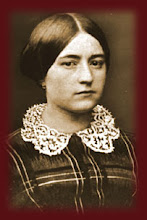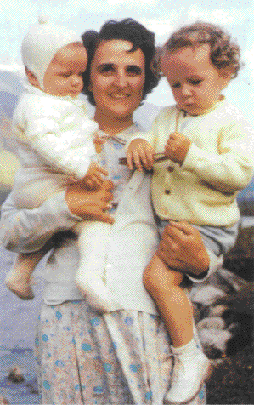
Today is the birthday of two people who have been very dear to me. One, who lives far away now, I see only rarely; the other I will probably never see again. Both were accomplished artists who strove to dive deep and seek out what was untapped and overlooked in their disciplines, and one in particular rose to a relatively high level of recognition, but both, worn down by poor remuneration and family exigency, eventually attrited out of their fields.
As much as there is real resentment among the upstanding towards those who have spent themselves in riotous living, there is also, as I've learned since beginning this blog almost exactly two years ago, resentment of those who have shunned duty and spent their days seeking out the greenest green, the purest sound, the truest word -- especially when the fruits of their efforts, no matter how beautiful, do not produce much in the way of cold, hard cash. Commenters on this blog have suggested that financial reward is the surest gauge of artistic ability, when anyone who's spent any time at all among artists knows that money earned is generally a random and inaccurate measure of the quality of the work.
Lately I've been reminded of the poem "In the Desert" by Stephen Crane:
In the desert
I saw a creature, naked, bestial,
Who, squatting upon the ground,
Held his heart in his hands,
And ate of it.
I said: "Is it good, friend?"
"It is bitter-bitter," he answered;
"But I like it
Because it is bitter,
And because it is my heart."
There seems to be an inordinate amount of self-perpetuating bitterness in our culture at present, and I've been disappointed to see many Catholic blogs serving it up. This blog, on the other hand, proposes that the work of seeking to uncover and propagate beauty is valuable work, even if it is not well-paid work, and even if it ends in total failure. Those who doubt this is a worthy proposition should read Michael D. O'Brien's compelling novel about the sufferings of a Native Canadian artist, A Cry of Stone. Or, if pressed for time, they could just read Frederick by Leo Lionni, in which the eponymous field mouse is chided by his community for appearing to daydream while they are gathering food for the winter. When winter comes, however, and the food supplies run low and everyone is feeling a bit . . . bitter, Frederick steps forth and tells them of the colors of the meadow (he had been "gathering" them while the others worked), describes the warmth of the sun so that it seems to the other mice that they can almost feel it, and recites a poem that helps them connect to a deeper sense of their shared field-mouse humanity.
This is the work of artists, whether known or unknown, whether successful by the measures of our materialistic society or not. It is sad to see those who should be seeking and advancing the beauty of God scorn the efforts of artists across disciplines to make His beauty more obvious and relevant to their fellows, when beauty itself is proof of His goodness.
Happiest of birthdays, M. and M. I wish you beauty.


















